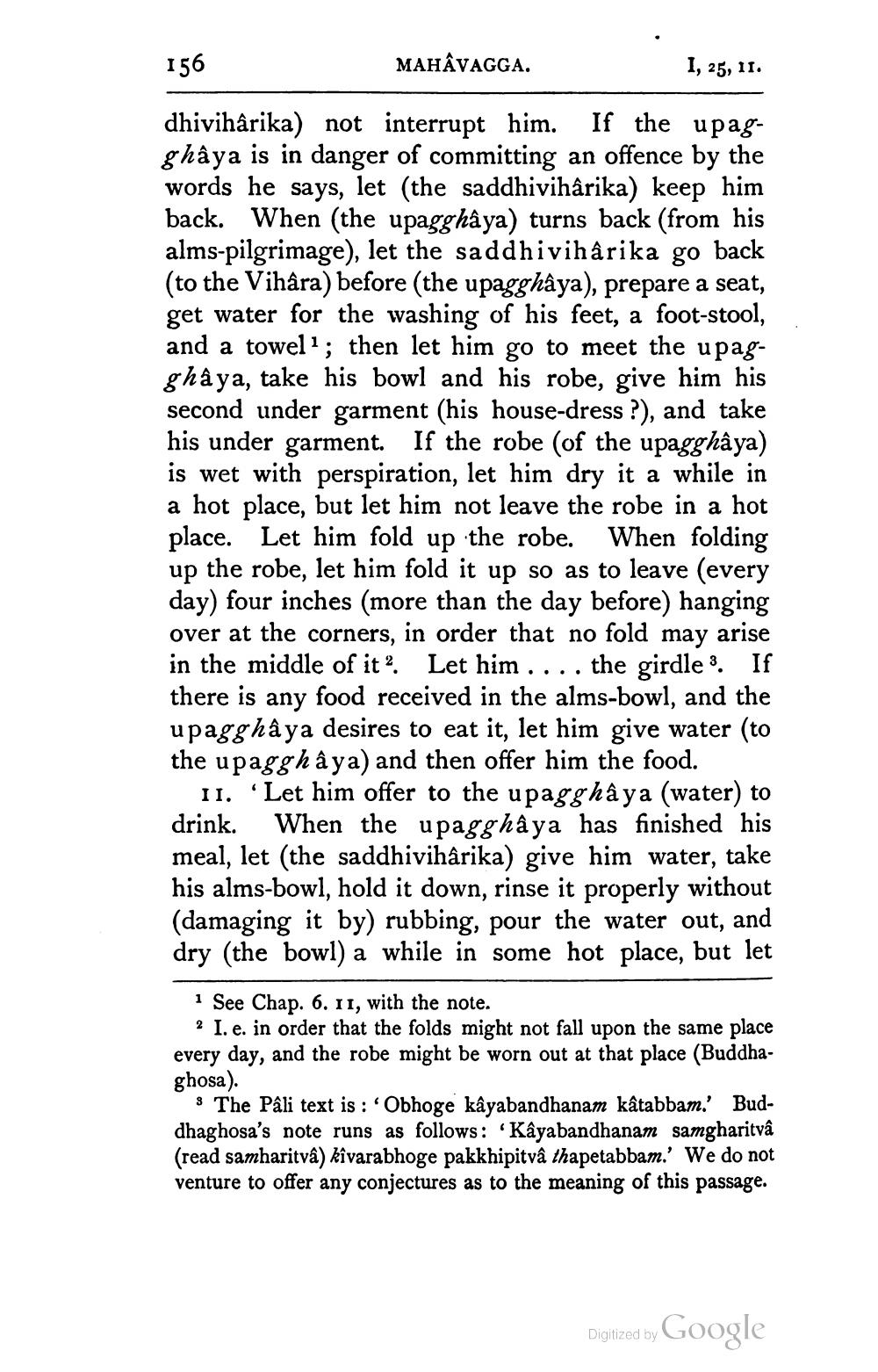________________
156
MAHÂVAGGA.
1, 25, 11.
dhivihârika) not interrupt him. If the upagghầya is in danger of committing an offence by the words he says, let (the saddhivihârika) keep him back. When (the upagghầya) turns back (from his alms-pilgrimage), let the saddhivihârika go back (to the Vihara) before (the upagghầya), prepare a seat, get water for the washing of his feet, a foot-stool, and a towel 1; then let him go to meet the upagghaya, take his bowl and his robe, give him his second under garment (his house-dress ?), and take his under garment. If the robe (of the upagghầya) is wet with perspiration, let him dry it a while in a hot place, but let him not leave the robe in a hot place. Let him fold up the robe. When folding up the robe, let him fold it up so as to leave (every day) four inches (more than the day before) hanging over at the corners, in order that no fold may arise in the middle of it? Let him .... the girdle 3. If there is any food received in the alms-bowl, and the upagghầya desires to eat it, let him give water (to the upagghầya) and then offer him the food.
11. Let him offer to the upagghầya (water) to drink. When the upagghầya has finished his meal, let (the saddhivihârika) give him water, take his alms-bowl, hold it down, rinse it properly without (damaging it by) rubbing, pour the water out, and dry (the bowl) a while in some hot place, but let
i See Chap. 6. 11, with the note.
? I. e. in order that the folds might not fall upon the same place every day, and the robe might be worn out at that place (Buddhaghosa).
3 The Pâli text is : Obhoge kâyabandhanam kâtabbam.' Buddhaghosa's note runs as follows: Kayabandhanam samgharitvâ (read samharitva) kîvarabhoge pakkhipitvâ thapetabbam.' We do not venture to offer any conjectures as to the meaning of this passage.
Digitized by Google




